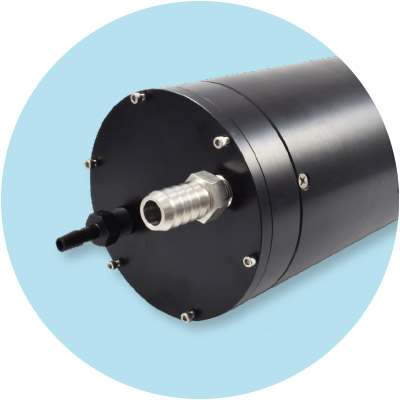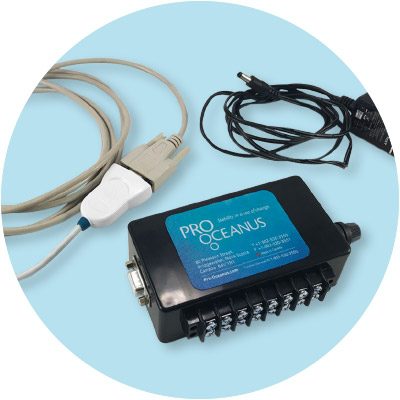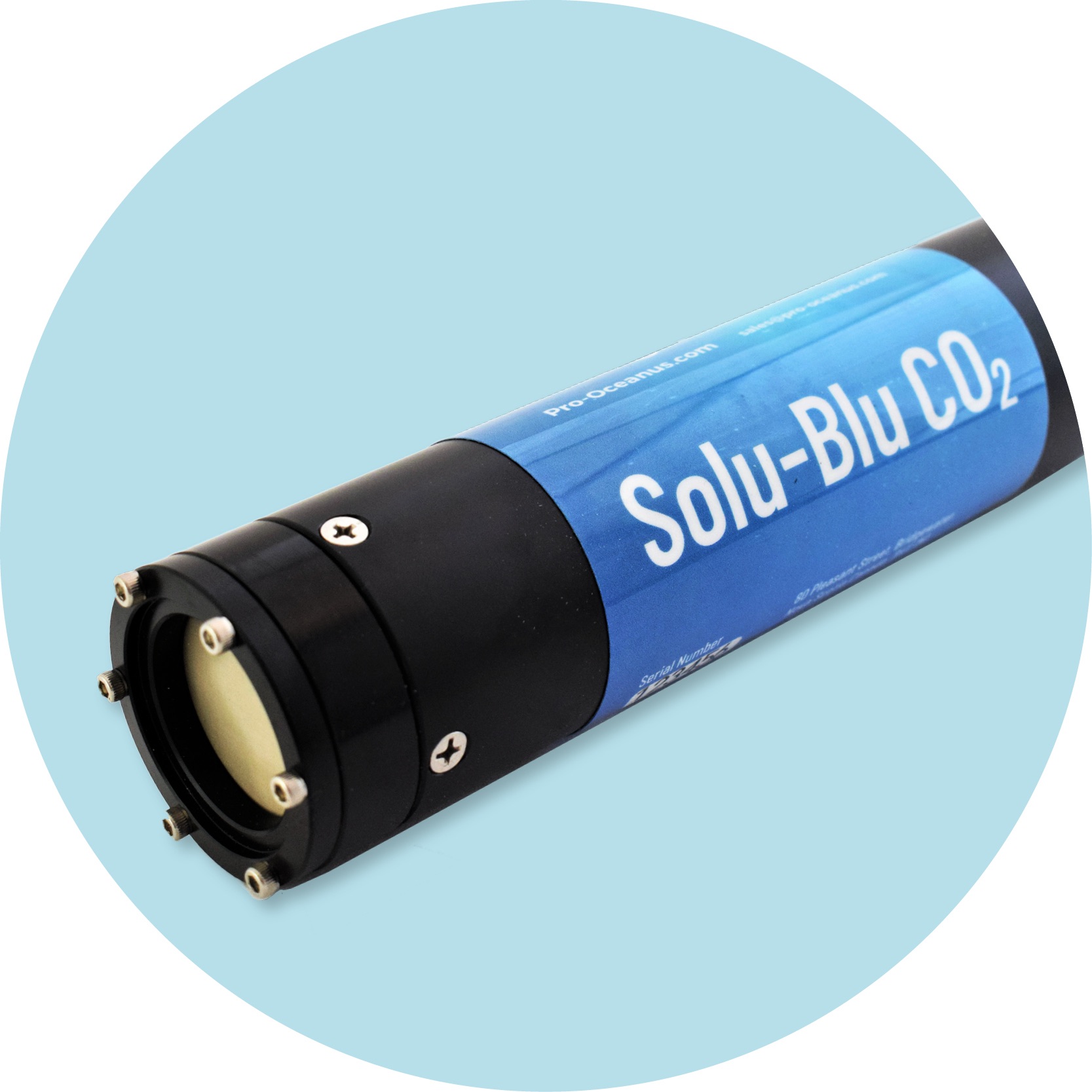Features
- Provides continuous 24-7 monitoring
- Compact size
- Easily integrated
- Rugged design
- Plug and play sensor
Applications
- Monitoring CO2 in RAS systems for maintaining fish health
- Monitoring CO2 in shellfish hatchery water intakes
- Measurements of CO2 in lakes and rivers
- Shallow groundwater CO2 studies
- CO2 monitoring in live transport of fish
- Monitoring for shellfish growouts
Solu-Blu™ Dissolved CO2 Probe
The Solu-Blu™ Series of instruments combine rugged design, ease of use and versatility, all in a single sensor package. The measurement of a gas dissolved in a liquid is facilitated by a semi-permeable membrane that allows gases to transfer from water into a gas head space where the measurement is made.
The Solu-Blu™ dissolved CO2 probe can be used for long-term continuous in-situ monitoring to provide reliable free dissolved carbon dioxide data. The probe provides a fully temperature and pressure compensated free dissolved CO2 and partial pressure of CO2 and user-input salinity values allow for automatic salinity correction. Flow-through and in-line adapters are also available for simple and effective industrial solutions.
Fish
Intensive water re-use systems and well-boats are particularly susceptible to CO2 problems. Increased stocking densities, leaks in aeration pumps, biofilters, source water and more, can lead to elevated CO2 levels. High free dissolved CO2 levels have been associated with formation of mineralized deposits in the kidneys, slowed growth, reduced efficiencies in feed conversion, increased susceptibility to pathogens, and interference with sense of smell leading to erratic swimming. Measurement of dissolved CO2 continuously in RAS with the Solu-Blu™ dissolved CO2 probe can provide useful and cost-effective feedback control for aeration so that optimal levels of CO2 are consistently maintained.
Shellfish
Elevated CO2 levels alter the delicate balance of the carbonate system in the ocean. These changes make ocean water more corrosive to shellfish shells. Earliest larval stages are particularly sensitive to these changes and often have to divert too much energy to shell building from eating and swimming and this can lead to increased mortality. Intake of ocean water during acidification events has been linked to collapse of oyster seed production at hatcheries. In-situ monitoring is the best method to ensure timely knowledge of changes in carbonate chemistry to allow for protection of shellfish stock.
PRODUCT SPECIFICATIONS
| Sensor Performance | |
|---|---|
| CO2 Measurement Ranges | 0-50 mg/L 0-2000 μatm 0-5000 μatm 0-10,000 μatm *other ranges available |
| Accuracy | |
| CO2 | ± 3% of max range |
| TDGP | ± 0.1% (0-2 bar range) |
| Temperature | ± 0.5º C |
| Equilibration rate (t63): | |
| pCO2 | 4 minutes |
| TDGP | 10 minutes |
| Sensor warm up time | 3 minutes |
| Resolution pCO2 | 0.1% of max range |
| Physical | |
|---|---|
| Length | 20 cm (8 in) 26 cm with connector |
| Diameter | 4.76 cm 1.882 in) |
| Weight | 0.47 kg (1.04 lbs) |
| Housing Material | Acetal Plastic |
| Depth Rating | 0 - 50 meters |
| Water Temperature | -2º to 35º C |
| Electrical | |
|---|---|
| Input voltage |
digital: 7-24 VDC |
| Power consumption |
RS232 with 0-5V output: 360 mW (30 mA @12VDC) RS232 with 4-20mA ouput: 300-600 mW (25-50 mA @ 12 VDC) |
| Data output | RS-232, ASCII format 0-5 V or 4-20 mA |
| Sample rate | 2 second |
OPTIONAL ACCESSORIES

Water-Pumped Head
Reduce biofouling and improve response rate

Power / Communications Box
Allows for direct connection to computer and wall power outlet for plug and play operation
